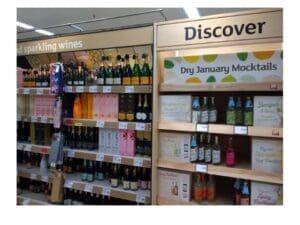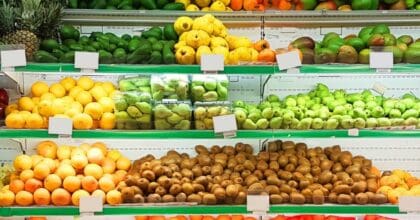With the festive and New Year’s celebrations firmly over, many Brits have committed to give up alcohol until the 1st February – as part of ‘Dry January’. Now in its eighth year, the initiative encourages alcohol abstinence for 31 days as an opportunity to be hangover-free, help reduce waistlines and save money.
Martin Pasco – a British national, Francophile and former French resident – considers three reasons why le janvier sec is unlikely, and doesn’t really need to, take-off across the channel in France.
The French understand year-round moderation
The French are brought up with a sense of moderation in all things food and drink, which just doesn’t seem to get much space in British culture. This means that when it comes to drinking alcohol the French often take a more restrained approach. On-premise practices are also restrained; with for example white wine being typically served in what (to British eyes) can look like thimble sized glasses. This of course has a culinary rationale, in that the drinker gets a colder serve and has the option to repeat. This contrasts to the British ‘go large’ approach to glass size.
Also, French adverts for alcohol brands are ubiquitous, especially on radio, in a country where alcohol is part of the culinary landscape. Ads for alcohol, sign off with rigorous governmental warnings to avoid the ‘abuse’ of alcohol. Perhaps in this context the French government feels they already have a moderating public voice and are already promoting ‘responsible’ drinking all year round.
The UK government and retailers have got behind ‘Dry January’
‘Dry January’ was started by a UK charity, and is now supported by Public Health England. In January 2019 dry fixtures appeared in major retailer J Sainsbury, who reached out to their shoppers with ideas for alcohol-free options for drinkers to discover, such as mocktails, gin and tonic flavoured cordial.
In contrast, it’s been reported that the French Champagne and Wine Growers Association consulted President Macron about road testing Dry January for the first time in France in 2020. The proposal was allegedly not adopted by Macron, due to fears it might harm the French wine industry, and was not aligned with a preferred approach of promoting responsible drinking all year long.

For ‘Dry January’ to gain traction, consumers need to be open to substituting full alcohol by volume (ABV) drinks with non-alcoholic alternatives.
Both the UK and France have come on board with alcohol-free beer. However, when it comes to wine, Mintel research shows that seven in ten non-alcoholic wine launches were in the UK, whilst France failed to get on the score sheet. This lack of innovation means young French drinkers will struggle to find any alcohol-free versions to sample.
Consequently, only one in ten French drinkers age 18-34 express an interest in alcohol-free wine, whereas 18% of UK 18-34 drinkers have actually purchased it.
This difference also perhaps reflects the fact that the UK is less steeped in strong food and drink culture and traditions, in the same way that France is. The lack of more rigid rules perhaps frees up the British to be more experimental, to try out new ideas, and to be less constrained by rigid notions of what wine can become.








































